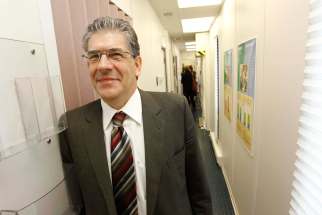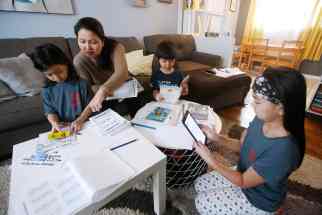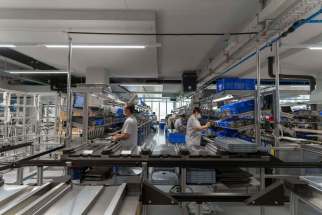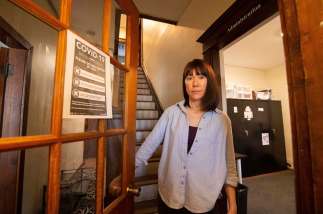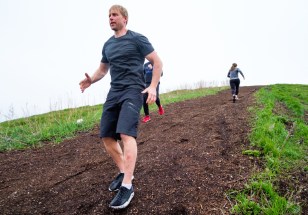What goes around… Life under COVID-19 eerily similar to life after transplant surgery
Read this article for free:
or
Already have an account? Log in here »
To continue reading, please subscribe:
Monthly Digital Subscription
$0 for the first 4 weeks*
- Enjoy unlimited reading on winnipegfreepress.com
- Read the E-Edition, our digital replica newspaper
- Access News Break, our award-winning app
- Play interactive puzzles
*No charge for 4 weeks then price increases to the regular rate of $19.00 plus GST every four weeks. Offer available to new and qualified returning subscribers only. Cancel any time.
Monthly Digital Subscription
$4.75/week*
- Enjoy unlimited reading on winnipegfreepress.com
- Read the E-Edition, our digital replica newspaper
- Access News Break, our award-winning app
- Play interactive puzzles
*Billed as $19 plus GST every four weeks. Cancel any time.
To continue reading, please subscribe:
Add Free Press access to your Brandon Sun subscription for only an additional
$1 for the first 4 weeks*
*Your next subscription payment will increase by $1.00 and you will be charged $16.99 plus GST for four weeks. After four weeks, your payment will increase to $23.99 plus GST every four weeks.
Read unlimited articles for free today:
or
Already have an account? Log in here »
Hey there, time traveller!
This article was published 24/03/2020 (2091 days ago), so information in it may no longer be current.
Been there, done that. Doing it again.
The novelty of working from home is wearing off for most people. Imagine the tedious déjà vu for someone who spent last summer stuck in his condo.
Until we make some inroads at controlling the spread of the COVID-19 virus, self-isolation and social distancing will be the new normal. Last year, I spent three months on a similar type of self-isolation after undergoing kidney-transplant surgery.
Connected by workplace, friendship and now kidney transplant
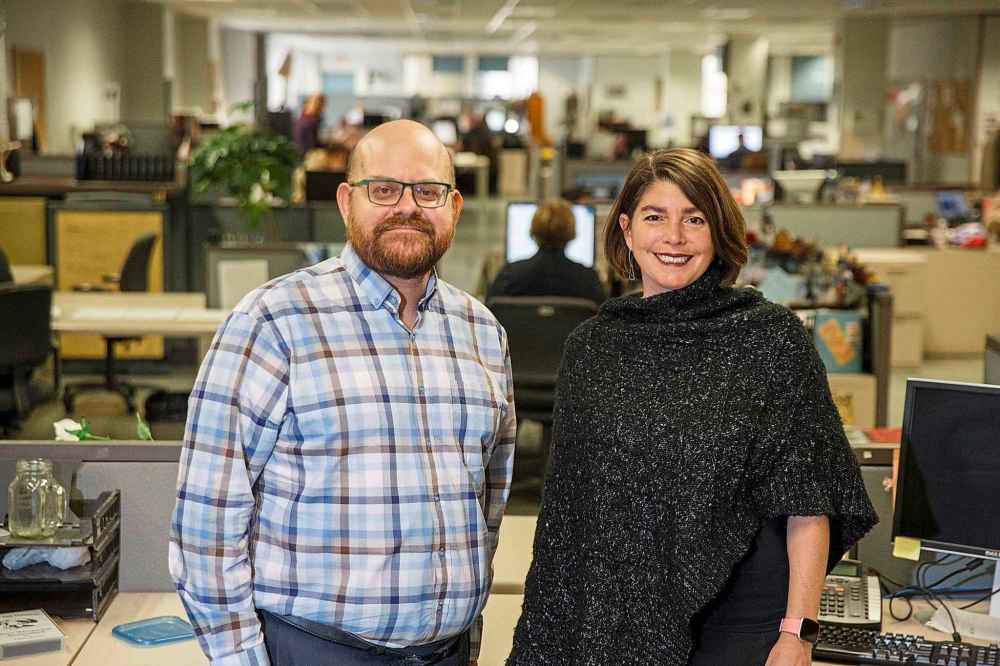
Posted:
Free Press writer Jill Wilson made a momentous decision to donate a kidney so Alan Small, her friend and colleague in deteriorating health, was able to receive the organ he so desperately needed. Read their stories.
Anti-rejection medication stops patients’ immune systems from rejecting transplanted organs. The drawback is that the medicines also suppress the body’s natural reaction to fight off bacteria and viruses. Even a childhood malady that would mean only a week off school for a 10-year-old is so dangerous to adults with compromised immune systems that some patients — me included — take expensive antiviral drugs until anti-rejection doses are gradually lessened and weakened immune systems have a fighting chance.
I’ll be taking those medications for the rest of my days. COVID-19? Stay away from me, please.
Starting June 24, 2019 — just four days after my surgery — it was time for the ultimate summer stay-cation. Nurses at the Renal Transplant Clinic instructed me to stay at home if at all possible, and to avoid crowds and shopping malls, in particular. When I needed groceries, I should go to the store at off-peak hours and avoid others while I shopped and quickly returned to my car.
Those instructions sound eerily similar to the social-distancing advice we’ve all received loud and clear this month from chiefs of public health, doctors from around the world, politicians and even celebrities.
So I did then what everyone should be doing now. I stayed home.
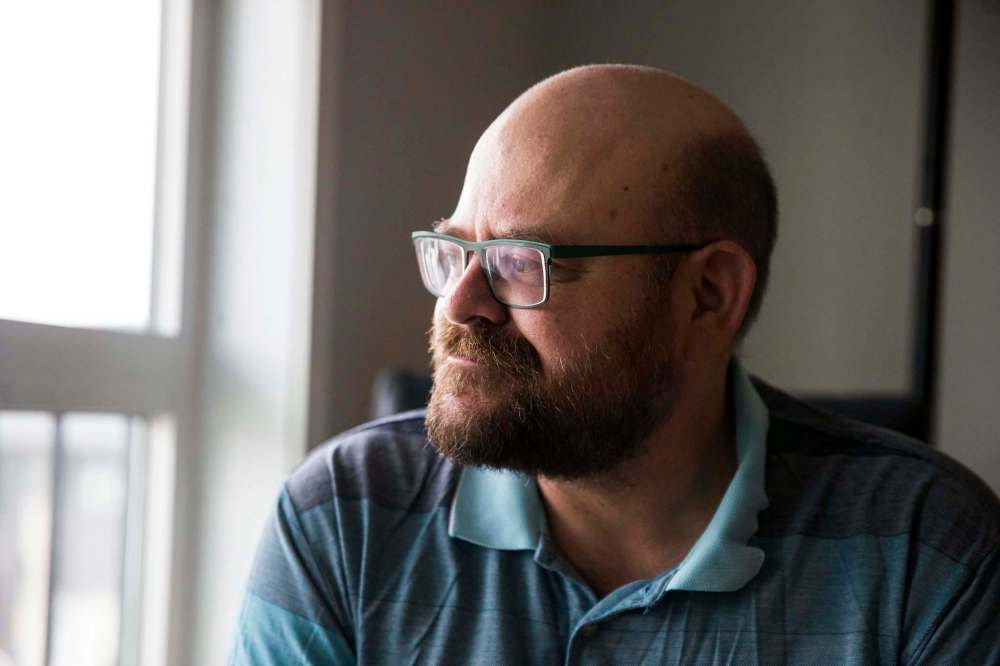
The TV was always there to grab my attention, but after a while, my attention would wander. Daytime television wasn’t my thing. I’d turn on a baseball game and read a book or do a crossword puzzle while listening to the play by play. I had saved about a dozen movie classics on my PVR, but they mostly remain there, unwatched.
I’ve binge-watched television series before, but I just didn’t have the concentration to watch episode after episode. Last summer’s self-isolation was a marathon, not a sprint, so I would watch one and save the following one for the next day. It’s my TV-watching advice to you, my fellow social-distance warriors.
I’d go for a walk often last summer. Mothers and babies would stroll in the morning and people would walk their dogs just before supper. I’d keep my distance. I would also stay out of the heat — remember how beautiful last summer was? — because I was told to avoid the sun and dehydration.
It would be a few weeks before I was able to meet up with friends for a while. A phone call from a friend or relative pretty much made my day.
I’ll be taking those anti-rejection medications for the rest of my days. COVID-19? Stay away from me, please.
My 91-year-old aunt in Edmonton helped me last summer, and I call her now. We’re both stuck alone at home, and our chats help each other.
Phone-a-friend isn’t just for game shows.
The long days of summer would shorten and after three long months, I returned to work. I felt great and I couldn’t wait to be around people again. By following the rules the nurses and doctors gave me, I felt stronger and ready to resume my career. I couldn’t wait to dispense with my summer routine and get back to my old ways. Theatre groups, the Winnipeg Symphony Orchestra and art galleries would begin their new seasons and excitement was in the air.
That lasted six months.
A golf vacation to Phoenix planned for last week went by the wayside. Soaring drives and fun times were replaced by skyrocketing positive tests for COVID-19 and the horrible news of cancellations of virtually every cultural event in our city for the foreseeable future.
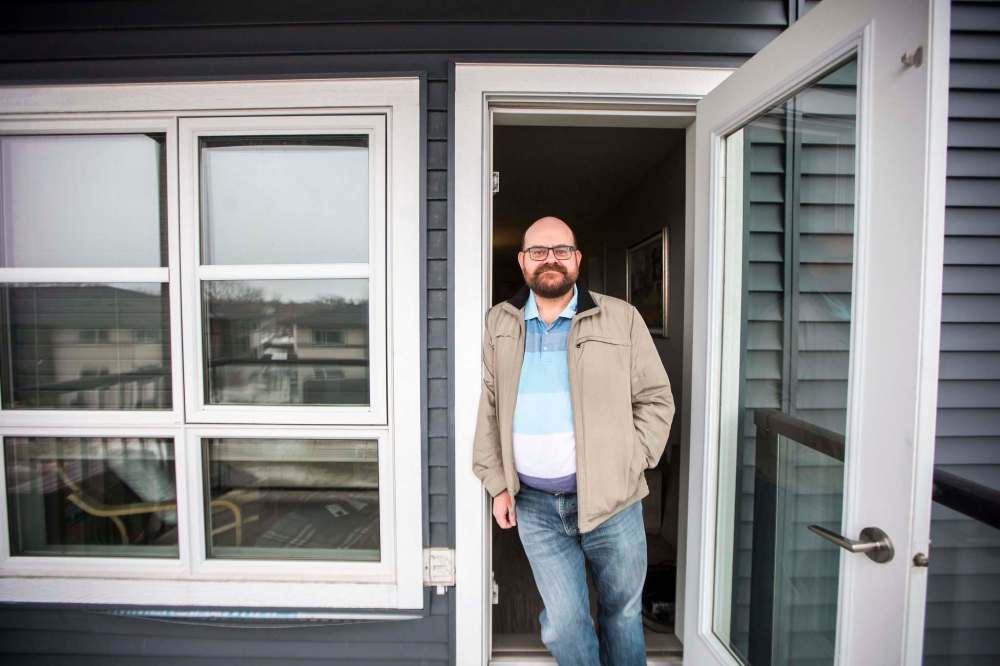
So instead of flying south, I stayed home. Stuck inside my condo with the virus blues again.
This time, there are no sports to distract me from the news of the day. Those same movies I didn’t feel like watching last summer are still waiting for me. Daytime television has morphed from the banality of talk shows and soap operas to uneasiness of press conferences.
Tuesday was the first time I’ve worked from home in years. I’m writing instead of editing, which has to be done in the office, and the Free Press recognizes I’m an ideal target of the COVID-19 threat.
Going outside is also different than last summer. The Health Sciences Centre, where my appointments have been, has become off-limits to transplant patients. Appointments will be done by phone and blood tests will be conducted at one of several private labs scattered around Winnipeg.
Seeing a health-care worker in full antiviral garb on TV is commonplace; seeing one in front of you is a shocker.
It was my turn for a regular blood test at one of those labs on Monday. Seeing a health-care worker in full antiviral garb on TV is commonplace; seeing one in front of you is a shocker. Questions are asked about symptoms and travel. I’m fine, and the worker lets me in. The waiting-room chairs are spread out, all a metre or so away from each other. The seats are filled with nervous people, and there were more jittery folks down the hall.
The sooner the threat ends the better, but soon doesn’t look like it will be soon enough.
So we must stay home. It’s become our duty; our way of pitching in. Sharing some face time with those outside our homes has become an unaffordable luxury whose return is a far and dim light at the end of a dark tunnel.
If we all stay at home and do as the public health doctors recommend, the coronavirus threat will pass.
Until then, let’s accept our boring medicine, stay home, and wait for it to work.
alan.small@freepress.mb.ca
Twitter:@AlanDSmall
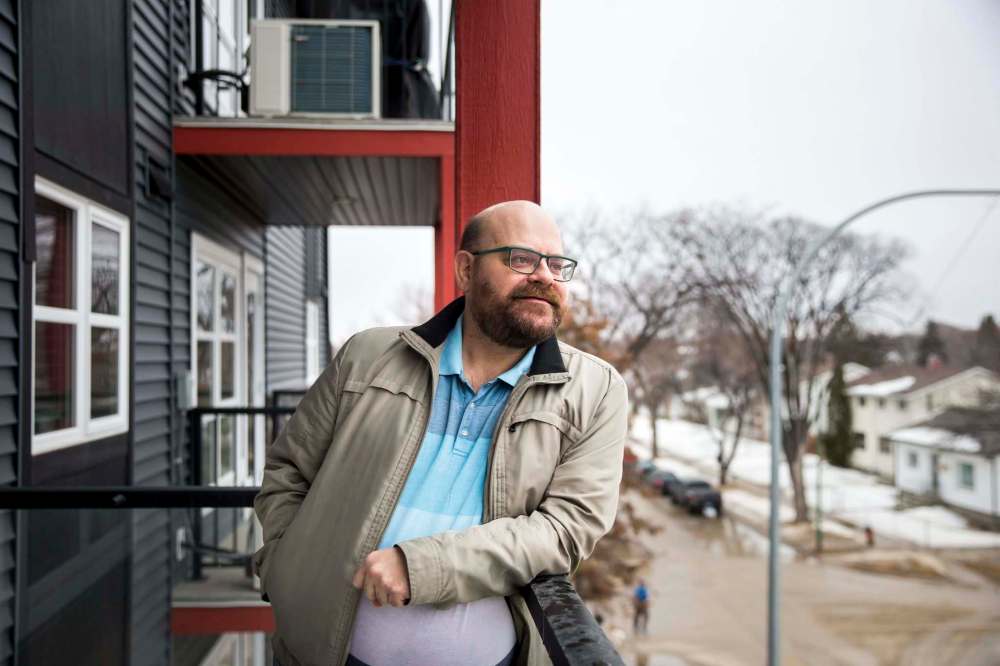

Alan Small has been a journalist at the Free Press for more than 22 years in a variety of roles, the latest being a reporter in the Arts and Life section.
Our newsroom depends on a growing audience of readers to power our journalism. If you are not a paid reader, please consider becoming a subscriber.
Our newsroom depends on its audience of readers to power our journalism. Thank you for your support.

